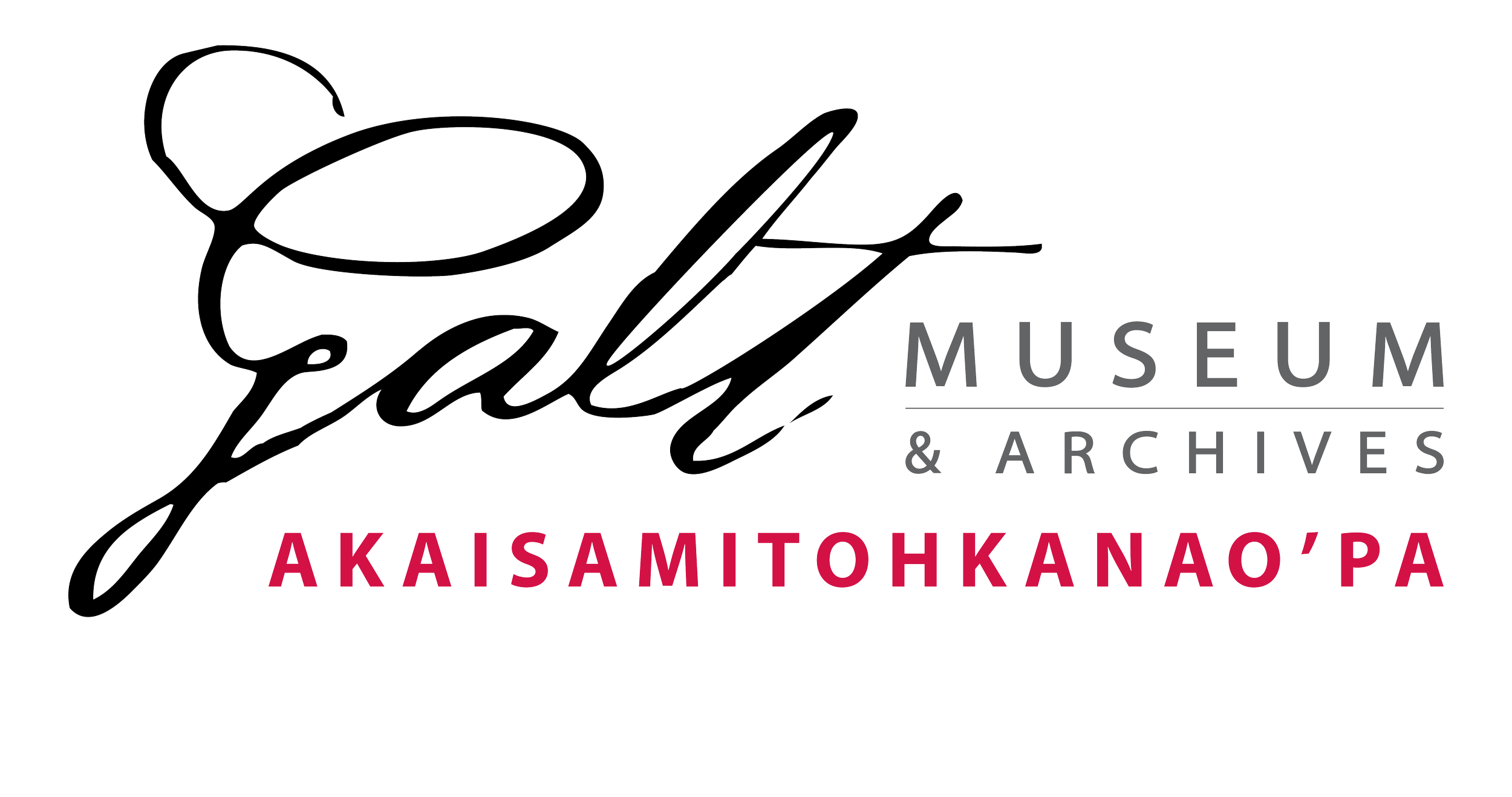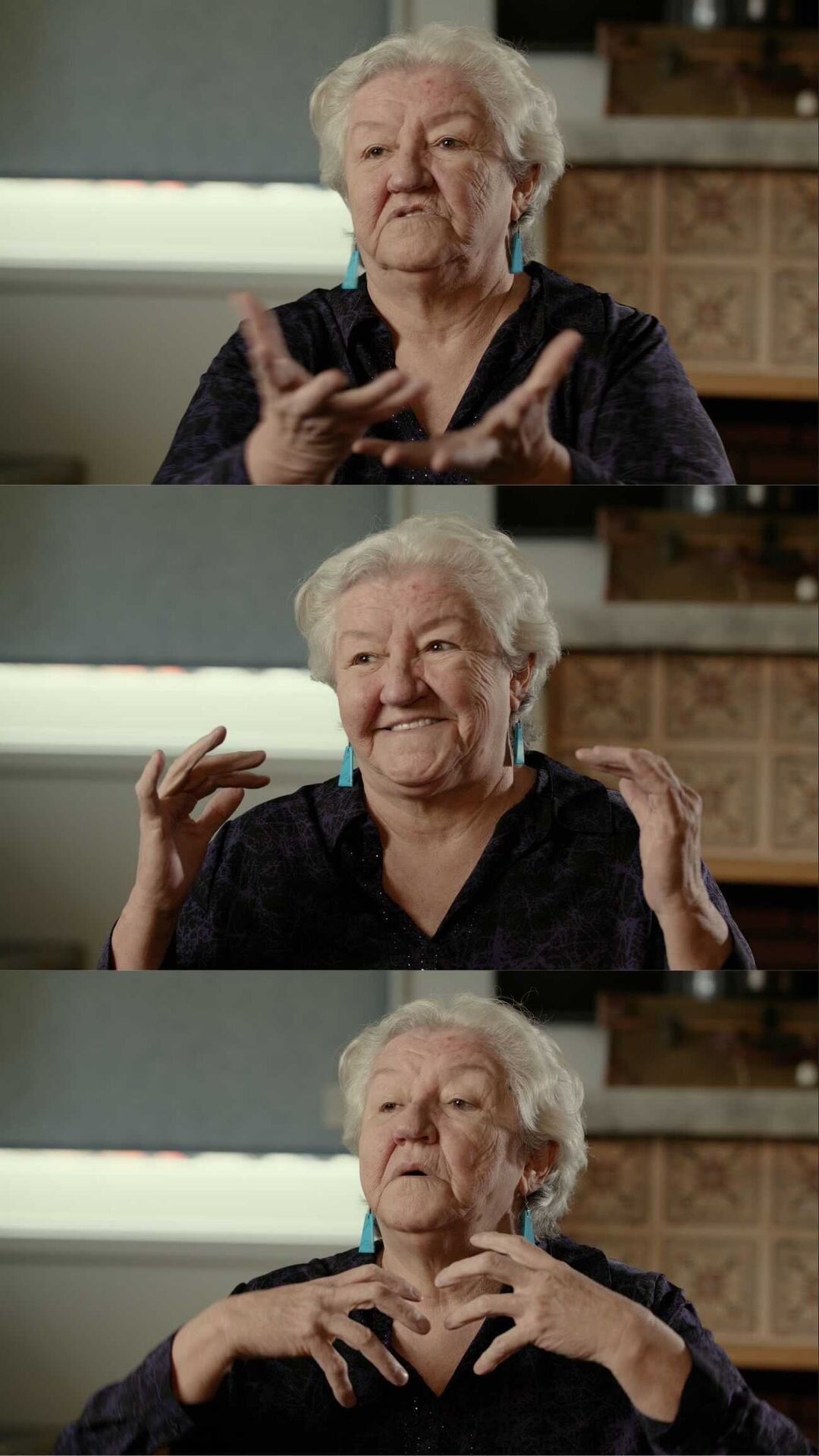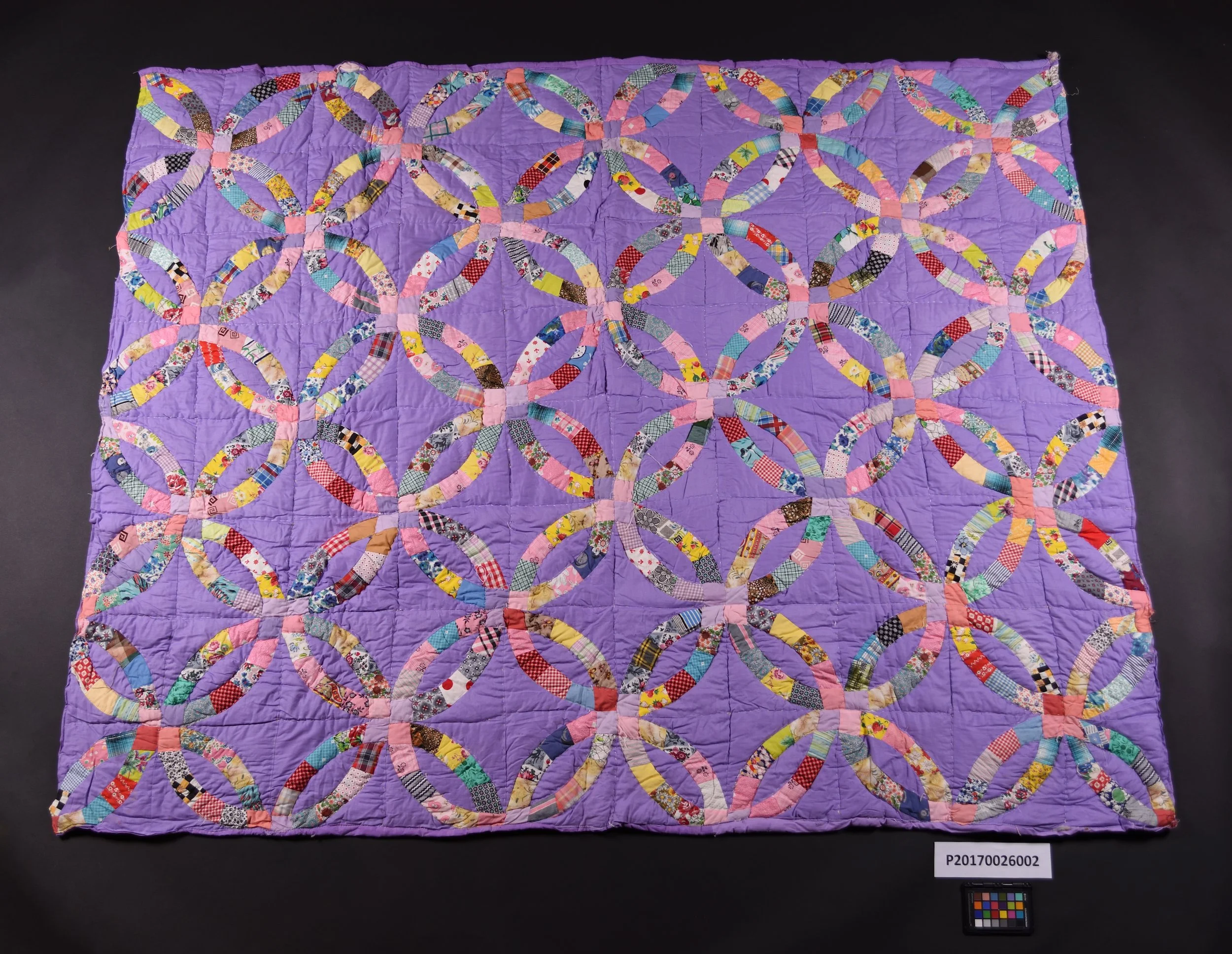Blackfoot and Blanche
Blanche Bruisedhead teaches a group of kindergarten students about Blackfoot culture and language at the Galt Museum & Archives, October 3, 2019.
Galt Museum & Archives.
Stills from an interview with Blanche Bruisedhead, January 15, 2021.
Photos by Michael Warf
Growing up on the Blood Reserve in the 1950s Blanche Bruisedhead recalls that she and her parents spoke only Blackfoot. She knew the English names of her family, but not that those words were English. Blackfoot was the only language they needed.
When Blanche was 7 years old, her parents were forced to send her to St. Mary’s Residential School. There, she and her fellow students were forbidden to speak Blackfoot. When Blanche had a question she would whisper it to an older girl who she called her “guardian,” who would translate her question into English. The school officials considered the Blackfoot language to be the “devil's work.” Children caught speaking Blackfoot would be beaten with a strap across their hands.
Blanche was not allowed to see her parents for months after arriving at St. Mary’s. She remembers her father advised her, “My daughter, you learn their language. You learn it. Don’t just come to understand it, but learn it and use it to your advantage.” As she grew older she interpreted for her parents, until they were also fluent in English.
Later in life, Blanche had two sons with whom she spoke English. She says that it is only recently that her sons, now in their 50s, have the patience to learn Blackfoot. “Unlike their grandparents, their way of living is not a crime and they have never had to suddenly adapt.”
Blackfoot is still spoken in Lethbridge and across southern Alberta today. It is a living language, with new words emerging. Blanche observed that it is the non-Natives who, after centuries of living here, still struggle to speak Blackfoot. Most are unable to say “Oki,” the simple three-letter word for “hello.” She emphasized that there is no equal meeting of the two cultures. It is the Blackfoot who must always use English; who must step into the English world.
Today, Blanche is the Blackfoot Interpreter at the Galt Museum & Archives. She loves to share her language and culture with anyone who wants to learn. You can watch the “Blackfoot with Blanche” video series at www.galtmuseum.com.












Dr. Frank Hamilton Mewburn was a wiry and fiery surgeon, politician, army officer, and university professor who greatly contributed to the development of Lethbridge. Mewburn came from a long ling of medical professionals, graduating from McGill University in Montreal in 1881.